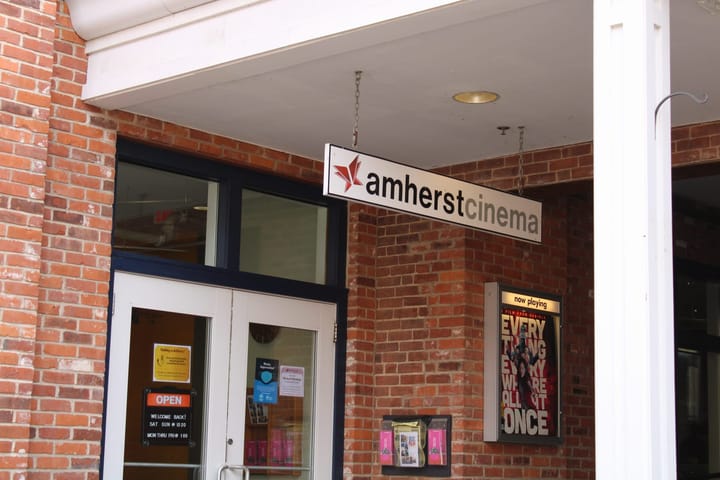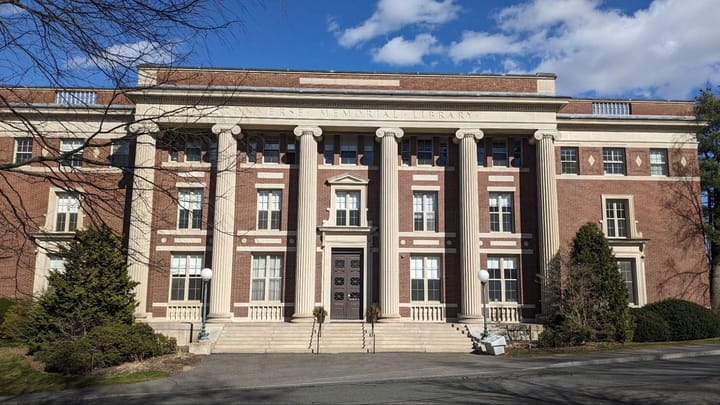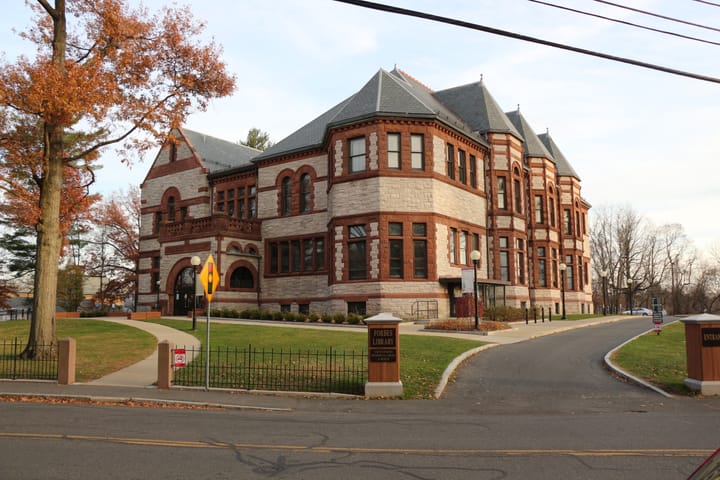In Open Letter, Alumni Ramp Up Calls for Asian/Pacific/American Studies Major
The Amherst Asian Alumni Network (AAAN) wrote an open letter in early August to key administrators calling on them to commit to establishing a Asian/Pacific/American studies major. Though similar appeals have been ongoing for years, the recent wave of anti-Asian racism has redoubled the calls.
On Aug. 10, the Amherst Asian Alumni Network (AAAN) wrote an open letter to President Biddy Martin, Provost and Dean of the Faculty Catherine Epstein and the board of trustees calling on the college to commit immediately to establishing its own Asian/Pacific/American (A/P/A) studies major.
The letter, published on AAAN’s website, has received nearly 250 signatures from students, faculty and alumni at the time of publication. The administration has not publicly issued a response to the letter, but told The Student that they are working to hire more faculty specializing in A/P/A studies and do expect an A/P/A studies major to be formed in the future.
The AAAN is an alumni-led group that seeks to support and advocate for the needs and interests of Asian-identifying members of the college community. Their open letter came in the wake of surging anti-Asian racism during the pandemic and student dissatisfaction with the administration’s response to such hate.
In the letter, the AAAN wrote that the college has not made good on its “commitment to educating students on the experiences of Asian Americans,” pointing to the mere three courses in A/P/A studies being offered in the Fall 2021 semester. The letter professed that the establishment of A/P/A studies is indispensable for creating a truly anti-racist curriculum, as well as supporting Asian- and Pacific Islander-identifying students at Amherst.
The AAAN called on the college to prioritize the creation of an A/P/A studies major, outlining six broad demands for the college to commit to immediately: 1) formalize a commitment to expanding A/P/A course offerings; 2) form a working committee to outline the steps to create the A/P/A studies major; 3) create new pathways for hiring of A/P/A studies scholars; 4) ensure that there are at least seven tenured or tenure-tracked A/P/A Studies professors teaching courses each semester; 5) expand and regularize formal policies to measure and address faculty retention; and 6) allocate resources like counseling, mentorship and career development initiatives that focus on Asian American and Pacific Islander (AAPI)-identifying students and faculty.
“We are confident that Amherst can become a more inclusive, more diverse, and more equitable institution,” the letter stated. “However, this goal can only be met through a serious commitment of time, energy, and resources. The College must act with urgency to meet our demands, which are critical to Amherst’s mission and to addressing its history of racism, white supremacy, and Eurocentrism.”
Chief Communications Officer Sandy Genelius told The Student that “the administration agrees that the opportunity to study A/P/A studies is indispensable for creating an anti-racism curriculum” and acknowledged that “we have further to go” in offering courses on the experiences of Asian and Pacific Americans.
She added that “the administration hopes to work with the Committee on Educational Policy (CEP) to develop a cluster-hire initiative that will result in additional tenure professors at the College who specialize in A/P/A studies. … As the number of faculty in A/P/A studies grows on campus, we hope and expect that the formation of an A/P/A studies major will occur.”
Members of the AAAN also reported receiving a response from the administration stating their support of the continued development of A/P/A studies and describing their current efforts assessing the interest of different departments in partaking in a cluster-hire initiative. The administration, however, did not confirm in this response any intentions to establish an A/P/A studies major in the future. Additionally, the administration has not publicly issued any response to the letter committing to an A/P/A studies major or addressing any of the other demands made by the AAAN.
Jiajia Zhang ’22, one of the senior chairs of the Asian Pacific American Action Committee (APAAC), the campus advocacy group for an A/P/A studies major at Amherst, noted that the administration’s proactiveness in approaching faculty about a cluster-hire initiative was encouraging. At APAAC’s last meeting with administrators in April, she explained, they had asked whether the administration could themselves encourage departments specifically to pursue a cluster-hire, which the administration agreed to.
“It was significant to me that they agreed to that, because in the past, it’s always been put on us, the students, to arrange meetings with all these individual academic departments and gauge their interest,” said Zhang. “[The recent communication] means they had followed through on what they had promised in April.”
AAAN co-founder Miu Suzuki ’16 said the open letter was intended to “serve as more of an accountability check,” explaining that disparate efforts to advocate for A/P/A studies have too often restarted from the beginning instead of building on each other.
“After the tragic Atlanta incident, Biddy’s response was kind of outlining the same kind of support that we’ve always had on campus — there were not really new initiatives,” added ShoYoung Shin ’19, also a co-founder of the AAAN. “That was striking to see, in a time where there was so much violence and when students are feeling unsafe, especially.”
“We just want to see tangible next steps from Biddy, Epstein and all the people who hold decision-making power and can actually create movement when it comes to the development of A/P/A studies,” Suzuki said.
This idea of accountability and concrete steps underlied the specific demands made in the letter as well. “Our demands are moreso a framework on the pathway to establishing A/P/A studies, enumerat[ing] the different steps necessary to create it,” said Shin. She emphasized that the demands were written with an eye toward ensuring that any A/P/A studies program is developed with the care and support necessary for it to be high-quality and sustainable.
“We don’t want it to be, ‘Hey, we hired people, are you happy?’ We want it to be something that is made up in a really intentional way, where all the stakeholders are involved in the process as well,” Shin said.
The Five College Consortium has offered a Five College Asian/Pacific/American Studies Certificate Program since 2000, which the college made available to Amherst students in 2005. The program is co-chaired by Lili Kim, Center for Humanistic Inquiry fellow and visiting lecturer in history, and Michael Sakamoto, the University of Massachusetts, Amherst associate director of programming for the Asian arts and culture. Many of Amherst’s peer institutions, including the Claremont Colleges, Northwestern, New York University, Cornell and Duke, among others, have either an A/P/A or Asian American studies major.
Correction, September 24, 2021: Context was added to clarify that although a statement made to The Student by the administration expressed their expectations for the formation of an A/P/A studies major, these expectations have neither been communicated to the AAAN nor publicly declared.
Correction, September 24, 2021: A previous version of this story referred to Miu Suzuki ’16 and ShoYoung Shin ’19 as members of the AAAN, when they are in fact co-founders of the organization.
Correction, September 24, 2021: Details were added about the Five College Asian/Pacific/American Studies Certificate Program to clarify that the college did not join the program until 2005, five years after it was first established in 2000.





Comments ()